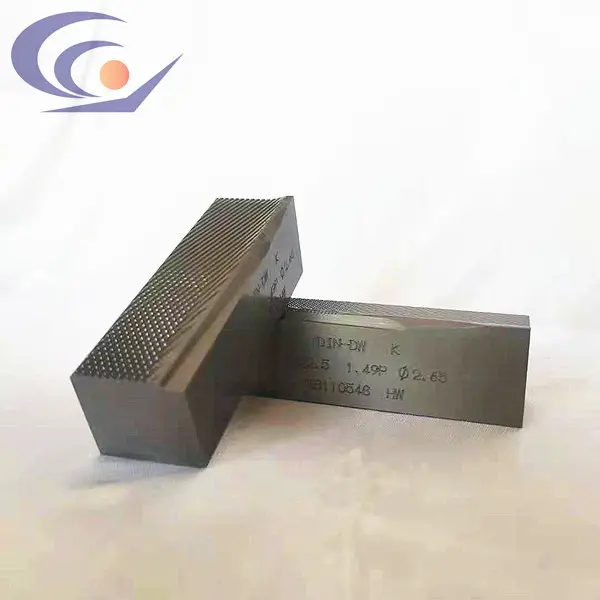Introduce:
Manufacturing operates on the principles of precision and efficiency, and every detail matters. One of the key aspects is the selection of thread rolling dies material. As the backbone of a threading tool, material strength directly affects its durability, performance and overall efficiency. This blog explores the importance of selecting the right materials for thread rolling dies and fastener dies to ensure a seamless production process.
Learn about thread rolling die materials:
Thread rolling dies are important components in the production of screws, bolts and other threaded fasteners. They are responsible for creating uniform and precise threads in the workpiece material, resulting in a safe and reliable fastening mechanism. The material used in a thread rolling die determines its hardness, wear resistance and overall lifespan.
Ideally, high speed steel (HSS), advanced high speed steel (AHSS) or carbide are the usual materials of choice for manufacturing thread rolling dies. High-speed steel exhibits excellent toughness, wear resistance and heat resistance, making it suitable for demanding applications. AHSS, on the other hand, improves hardness and wear resistance, thereby extending the life of the mold. Carbide is a composite material that combines tungsten carbide particles with a metal binder to provide exceptional hardness for long-lasting thread rolling dies.
The significance of fastener mold materials:
Fastener molds play a vital role in manufacturing high-quality screws, bolts, and other fasteners. Choosing the correct material for fastener molds is critical to ensuring accuracy and longevity. The material properties of the mold material directly affect the accuracy and durability of the fasteners produced.
Tool steels, especially D2 and H13, are known for their excellent wear resistance, toughness and ability to withstand high temperatures. These qualities make tool steel ideal for fastener molds, allowing it to withstand the stress of mass production while maintaining accuracy.
In addition to tool steel, other materials such as powder metallurgy (PM) alloys and stainless steel can be used for fastener molds. PM alloys have high hardness, dimensional stability and wear resistance, making them suitable for long-term production. Stainless steel is known for its corrosion resistance and high temperature strength and is used to make fasteners for special applications.
Improve screw tools efficiency:
By choosing the right materials for thread rolling dies and fastener dies, manufacturers can significantly improve the overall efficiency of their screw tools. The right materials ensure that thread rolling dies provide precise and consistent threads, reducing the chance of fastener failure due to runout or improper threading.
Additionally, using durable and wear-resistant materials in fastener molds ensures longer production life and minimizes downtime for mold changes. This increases productivity, reduces costs, and maintains the overall efficiency of the production line.
In conclusion:
In precision manufacturing, choosing the right materials for thread rolling dies and fastener dies is critical. It directly affects the performance, durability and overall efficiency of your screw tools. Whether it’s the toughness and wear resistance of high-speed steel or the hardness and longevity of tool steel, it’s critical to understand the material’s properties and choose the most appropriate option. By focusing on this important aspect, manufacturers can ensure the production of high-quality screws, bolts and fasteners that meet the needs of various industries.
Post time: Nov-22-2023



